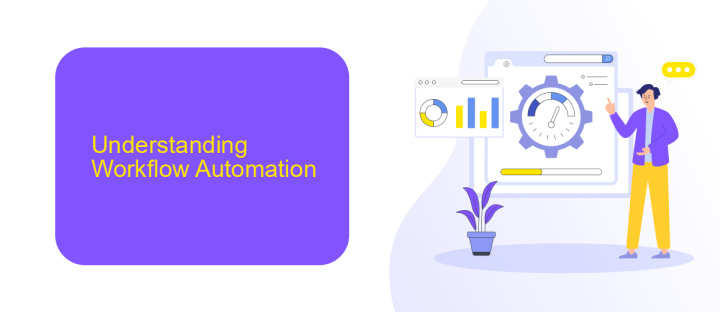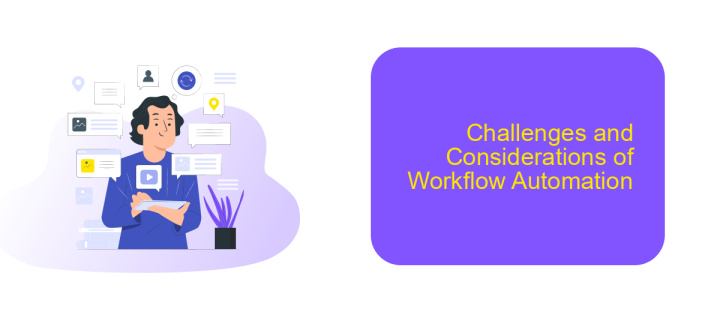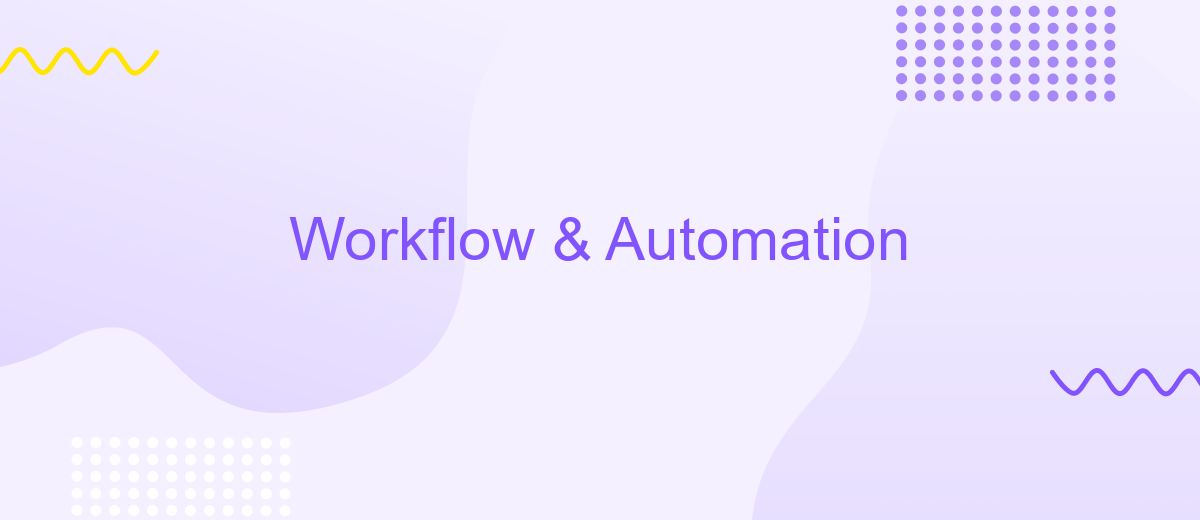Workflow & Automation
In today's fast-paced business environment, optimizing workflow and automating routine tasks have become essential for maintaining efficiency and competitiveness. Workflow and automation not only streamline processes but also reduce human error and free up valuable time for strategic initiatives. This article explores the key concepts, tools, and benefits of integrating workflow and automation into your organizational framework.
Introduction
In today's fast-paced business environment, workflow and automation have become essential components for enhancing efficiency and productivity. By automating repetitive tasks, organizations can focus on more strategic activities, thereby optimizing their overall performance. Workflow automation not only reduces human error but also ensures consistency and reliability in business processes.
- Streamlines repetitive tasks
- Reduces human error
- Enhances productivity
- Ensures consistency and reliability
One of the key tools in achieving seamless workflow automation is the integration of various software and services. Platforms like ApiX-Drive facilitate these integrations by allowing businesses to connect different applications effortlessly. With ApiX-Drive, companies can automate data transfer between systems, monitor workflows in real-time, and make data-driven decisions more efficiently. This not only saves time but also enables businesses to adapt quickly to changing market demands.
Understanding Workflow Automation

Workflow automation involves the use of technology to perform tasks without human intervention, streamlining business processes and increasing efficiency. By automating repetitive tasks, businesses can save time, reduce errors, and focus on more strategic activities. Automation tools can handle a variety of functions, such as data entry, email responses, and task assignments, making them invaluable for organizations looking to optimize their operations.
One of the key aspects of successful workflow automation is the integration of different systems and applications. Services like ApiX-Drive facilitate this by enabling seamless connections between various software platforms. With ApiX-Drive, businesses can automate data transfers, synchronize information, and ensure that all systems work together harmoniously. This not only enhances productivity but also provides a more cohesive and efficient workflow, allowing teams to concentrate on their core responsibilities.
Benefits of Workflow Automation

Workflow automation significantly enhances efficiency and productivity by streamlining repetitive tasks and processes. By automating these tasks, businesses can reduce human error, save time, and allocate resources more effectively. It allows employees to focus on more strategic activities that require human intelligence and creativity.
- Increased Efficiency: Automation reduces the time needed to complete tasks, leading to faster project turnaround and increased productivity.
- Cost Savings: By minimizing manual labor, businesses can lower operational costs and reduce the need for additional staffing.
- Improved Accuracy: Automated workflows eliminate the risk of human error, ensuring that tasks are completed correctly and consistently.
- Enhanced Collaboration: Tools like ApiX-Drive facilitate seamless integration between different systems, enabling better communication and coordination among team members.
- Scalability: Workflow automation allows businesses to scale operations quickly without compromising quality or efficiency.
Implementing workflow automation is crucial for staying competitive in today's fast-paced business environment. Services like ApiX-Drive offer powerful integration solutions that help organizations automate complex workflows effortlessly. By leveraging these tools, companies can achieve greater operational efficiency, improve accuracy, and ultimately drive growth.
Challenges and Considerations of Workflow Automation

Implementing workflow automation can significantly enhance operational efficiency, but it also presents several challenges and considerations. One of the primary challenges is the initial setup and integration of various systems and tools. Ensuring compatibility and seamless data flow between different software can be complex and time-consuming.
Another consideration is the cost involved in adopting automation technologies. While automation can lead to long-term savings, the upfront investment in software, training, and possible infrastructure upgrades can be substantial. Additionally, there is a learning curve associated with new tools, which can temporarily disrupt existing workflows.
- Integration complexity
- Initial costs
- Learning curve
- Data security
For those looking to simplify the integration process, services like ApiX-Drive can be invaluable. ApiX-Drive offers a user-friendly platform for connecting various applications without the need for extensive coding knowledge. This can help mitigate some of the complexities and costs associated with workflow automation, making it more accessible for businesses of all sizes.
Future of Workflow Automation
The future of workflow automation is poised to revolutionize how businesses operate, driving efficiency and productivity to new heights. As artificial intelligence and machine learning technologies continue to advance, they will enable more sophisticated and intuitive automation processes. These technologies will not only automate repetitive tasks but also provide predictive insights and decision-making capabilities, allowing businesses to proactively address issues and optimize their operations. The integration of AI with workflow automation will lead to smarter systems that can learn and adapt over time, further enhancing their effectiveness and reliability.
One of the key elements in the future of workflow automation is seamless integration between various tools and platforms. Services like ApiX-Drive are at the forefront of this evolution, offering powerful solutions to connect different applications effortlessly. ApiX-Drive enables businesses to automate data transfer and synchronize workflows across multiple systems, eliminating manual data entry and reducing errors. As we move forward, such integration services will become increasingly crucial, providing the backbone for a fully automated and interconnected business environment. This will empower companies to streamline their operations, improve collaboration, and ultimately drive growth and innovation.
- Automate the work of an online store or landing
- Empower through integration
- Don't spend money on programmers and integrators
- Save time by automating routine tasks
FAQ
What is workflow automation?
How can workflow automation benefit my business?
Can I integrate different software applications using workflow automation?
Is workflow automation suitable for small businesses?
What are some common tasks that can be automated in a workflow?
Apix-Drive is a universal tool that will quickly streamline any workflow, freeing you from routine and possible financial losses. Try ApiX-Drive in action and see how useful it is for you personally. In the meantime, when you are setting up connections between systems, think about where you are investing your free time, because now you will have much more of it.


